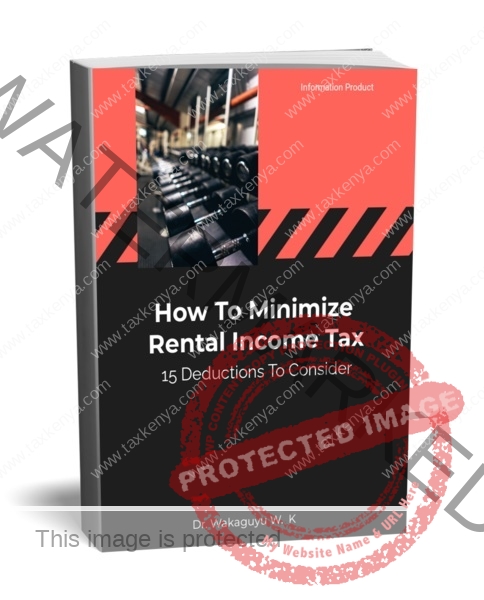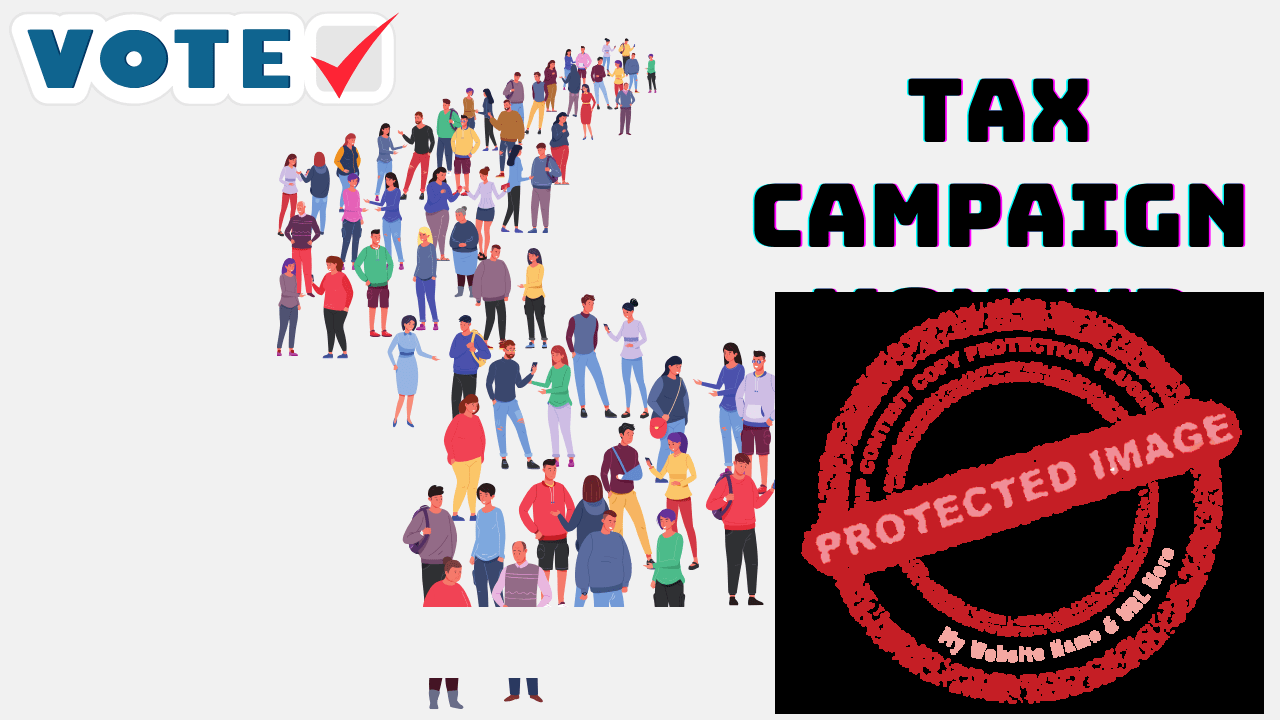After a few years it is campaign time and we ask the question: should campaign money be taxed? Why do we ask this question? Because there are tax implications on the source and use of the campaign money. Politicians beware.
a. Affiliate Disclosure: These are affiliate links from which we receive a commission at no cost. Read full Affiliate marketing disclosure HERE.
b. Tax Contents Disclaimer: The tax industry in Kenya is very dynamic. The tax contents in the posts are not professional advice. Read full disclosure HERE.
Campaign Money
It is electioneering time in Kenya when the country is awash with big money being spent on political campaigns. All over the World Kenya included, political campaigns require a lot of money to operate successfully. For taxation purposes, there are two important aspects that every politician must be worried about and must take considerable effort when handling and thinking about the campaign money. The following are two aspects:
a) Source of campaign money.
b) Use of campaign money.
The following sections explain the tax implications of the campaign money. The sections also explain what KRA may look for after the campaigns are long gone. This post is to help Kenyan politicians as taxpayers to comply with tax requirements. By doing this, they will avoid paying extra taxes in the form of fines, penalties and interests and hence create wealth.
Source of Campaign Money
Every politician who is vying for a political post in the upcoming August 2017 elections in Kenya requires money and big money. The money that will be used for political campaigns will be from either of the following sources:
a) Savings.
b) Sale of assets.
c) Donations.
d) Fundraising in open forums.
e) Dinner and Lunch Fund-drive.
f) Business deals.
g) Bride.
All this money is subject to tax in one form or another. Soon, after the political excitement is gone, KRA may demand an explanation of the sources of the campaign money especially if the money was deposited into a bank account where it can be easily traced.
Failure to explain the source of the money with documentary evidence will result in income tax and VAT where applicable. The taxes will be principal taxes, fines, penalties and interests. Let us look at some of the issues that KRA will probably require to examine.
Savings
Any type of savings must have originated from somewhere. Therefore, KRA will require documentary evidence of the source. If the savings were from salaries, KRA will require documents supporting the salaries earned and the PAYE that was for the same paid by the employer.
If the savings were from business income, KRA will require evidence that the money was subjected to tax at the company level as the income of the company. KRA will also require evidence that the money was subjected to income tax on being withdrawn from the company. The taxes applicable are either PAYE or corporate income tax. Evidence of tax payment on the savings must be provided.
Sale of Assets
Some politicians will sell assets such as securities, land etc. to raise money for the political campaigns. The properties may belong to them or they may belong to other people for example to parents. Currently, the Income Tax Act Cap 470 in Kenya demands that all income that is earned or derived from Kenya must be subjected to income tax (there are exemptions).
Therefore, when the politicians sell the assets, the first thing they ought to do is to pay the requisite taxes. This is income tax and capital gains tax where applicable. Once they have paid the taxes, they can use the balance of the money in whichever way they want. However, KRA will demand evidence of tax payments. Failure will result in principal taxes, fines, penalties and interests in income tax and VAT where applicable.
Donations
These are direct donations that politician may receive from family, friends or well-wishers. Normally, the politician may not be required to pay tax on the donations. However, the politician will be required to provide evidence that the money received as donations. The politician will be required to maintain records of all donors for political money.
Failure to maintain the records may result in the donations being classified as the politician’s own money that will be subjected to income tax and VAT where applicable. This will result in principal taxes, fines, penalties and interests. What KRA may do is that they may go after the persons or organizations that gave the donations to ensure that the donations were from taxed income.
Fundraising is Open Forums
Politicians have held numerous fundraising (harambees) that are normally open forums where people contribute according to their ability. The fund-drives are normally in the open where everyone is invited to contribute. The money raised during the fund-drives is not taxable because it is donations from well-wishers who wish to assist their candidate to succeed in the political venture.
The politician will be required to keep a record of all those who donated in the fund-drive. What KRA may do is to go after the people who donated and check whether the donations were from taxed money. Failure to disclose who donated the money may result in KRA demanding tax from the politician. This will be income tax at the rate of 30 % and will include fines, penalties and interests. VAT may be levied where applicable.
Dinner and Lunch Fund-drives
Sometimes, politicians hold fund-drives in lunch or dinners forums. There is a set amount of money that everyone who wishes to attend the occasion must pay. The occasion is not for everyone. The politician will derive and/or earn money from the occasion. The Income Tax Act in Kenya requires that all income that is derived or earned from Kenya must be subjected to income tax.
Hence, the money raised from the lunch and dinner fund-drives is subject to income tax and VAT where applicable. The politician is selling the occasion and earning money. Hence, KRA will require details of the fund-drive sales (money raised and the taxes paid).
Bribes
These are the monies that the politician will have received for various “services” that they provide to their friends and business associates. The money may be deposited into the bank accounts of the politicians or it may be given out in cash. Either way, the money can be traced.
In case the money is deposited into the bank accounts of the politician, then the politician will be required to provide evidence of the source of the money. The politician will also be required to provide evidence of any tax payments. Failure to provide the evidence will result in principal taxes, fines, penalties and interests for income tax and VAT.
Sale of Contraband Items
There are many contraband items sold by criminals in Kenyans such as drugs, guns, prostitution services, alcoholic beverages and all sorts of items sold in criminal activities. The contraband items may be imported or manufactured locally. They are illegal goods and services.
The Income Tax Act Cap 470 in Kenya requires that income that is earned or derived from Kenya must be subjected to tax. The Act does not specify whether the sources of the income are legal or illegal. Therefore, KRA may require evidence of tax payment on the money used by the politicians irrespective of the source.
Use of Campaign Money
The politician does not save the campaign money for future use. The money is to be used in political campaigns. The campaign money is used for
- Voter bribes.
- Campaign goods.
- Campaign labour services.
- Campaign logistics
This money is paid out to people or organizations who must account for taxation. The following is the tax implications of the campaign money
Voter Bribes
It is common knowledge that the voters are bribed in Kenya. The recipients of the bribes should be aware that any money that they receive is taxable in Kenya. By taking the bribes, the voters are selling their decision to choose a certain politician for another. Besides, the bribe distributors may be in a lot of trouble with KRA especially in cases where they bank the bribe money.
The bribe distributors will have to explain the source of the money. Failure to explain the source will result in income tax and VAT where applicable. Principal taxes will be raised in addition to, fines, penalties and interests. The politicians must maintain records of their voter bribes or whatever else they call them.
Campaign Goods
Complain goods such as t-shirts burners etc. must be paid including taxes on procurement where applicable. KRA may seek the supplier of campaign goods to ensure that necessary taxes were paid. Hence, the politician must keep proper records on their suppliers.
Campaign Labour Services
The politicians must remember that payment for labour services in Kenya is subject to PAYE. The pay to the politician “people” is subject to PAYE too. KRA will scrutinize whether there was any payment to anyone subject to PAYE. Taxes will be levied in addition to fines, penalties and interest.
Campaign Logistics
There is a lot of mobilizations that are required during the political campaigns. This requires a lot of logistic support. A lot of money is required for the logistic support especially to pay for such services as communication, transport etc. The recipient for this payment may be investigated by KRA on whether they remitted any taxes. Therefore, the politician must maintain proper records on the suppliers of campaign logistics services.
This post explained the tax implications of the 2017 election campaign money to the politician. As the politicians are going on a spending spree, they must remember that there are taxes to pay.
Thank you for reading the article.
What are your thoughts. Send us an email.
Dr. Wakaguyu Wa Kiburi.







